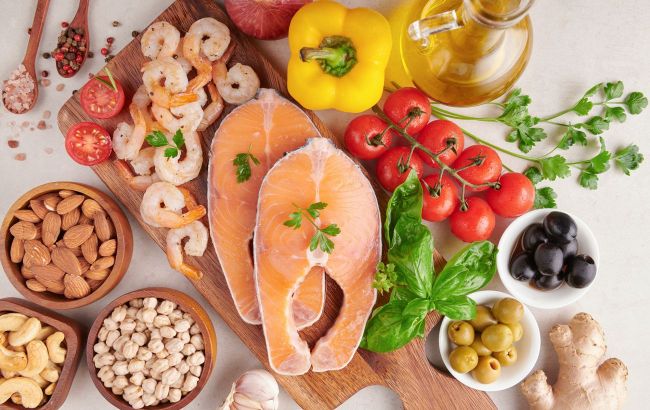8 foods that naturally boost collagen production
 Illustrative photo (Photo: Freepik)
Illustrative photo (Photo: Freepik)
In the ranking of trendy food supplements, collagen products occupy one of the top positions. In recent years, sales of collagen powders, beverages, capsules have sharply increased, promising healthier hair, skin, nails, bones, joints, and muscles. Real Simple, explains what collagen is, why it's necessary, and which natural products naturally enhance its production.
What is collagen?
Collagen is a protein that provides structure to muscles, bones, skin, and tendons. Although technically there are five types of collagen, most collagen sources eventually offer these benefits in addition to supporting organs, hair, nails, joints, eyes, and arteries.
Collagen, an essential building block for these vital structures, is abundantly present throughout the body. Our body produces collagen, but we can also obtain it from food sources and supplements.
As we age and are exposed to environmental factors such as ultraviolet (UV) radiation, collagen production begins to decrease. This is where consuming collagen through food or dietary supplements can play an additional role.
Collagen supplements have sparked much debate, but studies show the effectiveness of collagen supplementation, especially those made from hydrolyzed collagen, broken down for better absorption.
Consuming collagen is associated with increased skin elasticity, UV protection, heart health support, bone preservation, improved muscle strength, and joint pain relief.
However, dietary collagen also benefits the body. The two most effective ways to increase collagen stores in the body are to focus on consuming nutrients that support collagen production and intake foods high in collagen.
Where to find collagen?
"Certain amino acids including glycine, proline, and hydroxyproline serve as the building blocks for collagen, and in this way, support collagen production," explains dietitian Bianca Tumburello.
Fish
When it comes to natural collagen production, fish is one of the best foods. Fish collagen is one of the most efficiently absorbed sources of dietary collagen. The best choice is salmon, as it is rich in omega-3 fats and contains high-quality protein in the form of amino acids to support collagen production. Other options include anchovies and sardines.
Citrus fruits
Some products contain more vitamin C than citrus fruits, such as oranges, lemons, grapefruits, and limes. Vitamin C helps maintain collagen in the body and plays a crucial role in the body's production of its own collagen.
Eggs
Besides proline, zinc, and sulfur present in eggs, these favorite breakfast items support collagen production in the body. Although zinc is found in the egg yolk, proline and sulfur are mainly concentrated in the egg whites.
Berries
Whether strawberries, raspberries, blueberries, cranberries, or other tasty berries, these juicy fruits are packed with vitamin C, which contributes to collagen formation.
Bone broth
This is one of the most well-known collagen-rich products. You can make bone broth, although this process can take a lot of time.
Legumes
There are numerous vegan sources of protein that provide amino acids necessary for supporting collagen production, including hearty legumes like beans. Many varieties of beans not only contain many amino acids that support collagen formation but also are excellent sources of copper.
Poultry with skin
Perhaps it is one of those few instances where you will find domestic poultry with skin in health-oriented food reviews. But when it comes to collagen production, meat and fish can be of great help.
Shellfish
Shellfish, especially oysters, are very effective collagen production boosters. These salty delicacies not only contain various amino acids for collagen building but are also among the best food sources of copper and zinc.
And we also discussed foods that can ease bloating.
This material is for informational purposes only and should not be used for medical diagnosis or self-treatment. Our goal is to provide readers with accurate information about symptoms, causes, and methods of detecting diseases. RBС-Ukraine is not responsible for any diagnoses that readers may make based on materials from the resource. We do not recommend self-treatment and advise consulting a doctor in case of any health concerns.

